Speakers

Michael Agar has worked as a researcher and program and policy adviser in the drug field since 1968, primarily as an ethnographer and historian, his books including Ripping and Running, Angel Dust, Talking Numbers, and Dope Double Agent. He is professor emeritus from the University of Maryland and currently works as Ethknoworks in New Mexico (www.ethknoworks.com).
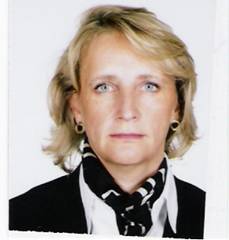
Born: Mexico City. Date: 06/15/1965. Sigrid Arzt is currently at public policy scholar at the Woodrow Wilson Center at the Mexico Institute in Washington, D.C. From the beginning of the Calderon administration (12/01/06) until April of 2009, Arzt was appointed by President Felipe Calderon, his National Security Advisor at the National Security Council at the Presidency Office. During the transition government she served as national security advisor and was responsible for the national security agenda. Until November of 2006, Arzt was director and founder of: “Democracia, Derechos Humanos y Seguridad” (DDHS- Democracy, Human Rights & Security). She is a PhD candidate on Comparative Politics and International Relations from the University of Miami, and holds a Master´s Degree in International Relations and Peace Studies from the University of Notre Dame, Indiana. Ms Arzt has been a visiting professor at Georgetown University under the auspices of the Woodrow Wilson Center. Arzt has been a consultant on security issues for the World Bank, and has developed workshops on crime and violence prevention to build the institutional capacity at local governments to produce public policy on security and citizen´s participation. At the public administration federal level, Ms Arzt has also worked at the Mexican National Intelligence Agency (CISEN) and as Technical Secretariat for the Attorney General´s Office. She is an expert on the Mexican security and justice system. She has taught in the Mexican Armed Forces in the Centro de Estudios del Ejército y Fuerza Aerea (CEEFA) and Navy School (CESNAV). Also at prestigious Mexican public and private universities, like CIDE, ITAM and Iberoamericana in Mexico City and in other State Universities. Ms. Arzt is married and mother of two boys.
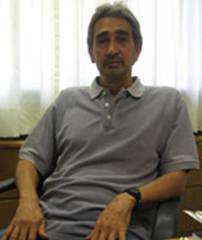
Dr. Luís Astorga, sociologist, is a researcher at the Institute of Social Research of the National Autonomous University of Mexico, (IIS-UNAM)He is currently working on the project "Traffic and drug traffickers in the Mexican northern borders", and is a network member of the MOST/UNDCP Project "Economic and Social Transformations connected with the International Drug Problem". He is the author of Mitología del "narcotraficante" en México (UNAM-Plaza y Valdés, 1995) and El siglo de las drogas, México (Espasa-Calpe Mexicana,1996).
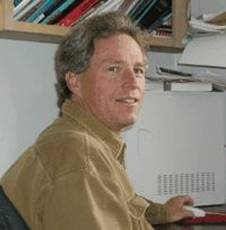
Tom Barry is Policy Director for the International Relations Center (IRC, formerly Interhemispheric Resource Center, online at www.irc-online.org). He co-founded the IRC in 1979 with Beth Wood and Debra Preusch, our Executive Director. In 1996 Barry founded Foreign Policy In Focus and was its first director. As senior analyst at the IRC, he has authored or co-authored numerous books on Mexico, Central America, the Caribbean, food aid, the United Nations, free trade, and U.S. foreign policy, including Global Focus: The Next Fifty Years: The United Nations and the United States (Resource Center Press, 1996); Zapata's Revenge: Free Trade and the Farm Crisis in Mexico (South End Press, 1995); The Great Divide: U.S.-Mexico Relations in the 1990 (Grove Weidenfeld, 1994); The Challenge of Cross-Border Environmentalism: The U.S.-Mexico Case (Resource Center Press, 1994); Crossing the Line: Immigrants, Economic Integration, and Drug Enforcement on the U.S.-Mexico Border (Resource Center Press, 1994); and Feeding the Crisis: U.S. Food Aid and Farm Policy in Central America (University of Nebraska Press, 1990).
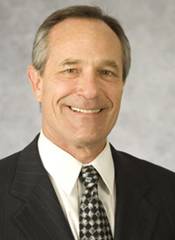
On April 16, 2009 Alan Bersin was officially appointed Border Czar by President Barack Obama. Bersin held a similar position during the Clinton administration. He served as U.S. Attorney for the Southern District of California as the U.S. Justice Department’s special representative for the Southwest border. He was Education Secretary of California and Superintendent of San Diego Schools, often clashing with teachers’ unions. During his prior tenure as border “czar”, Bersin advised Attorney General Janet Reno on strategies to reduce illegal immigration, human and drug trafficking. He tripled felony prosecutions, including immigration and drug offenses, but sparked controversy for implementing "Project Gatekeeper," which fortified the border near San Diego but has been blamed for a rise in immigrant deaths.

As a roving NPR correspondent based in Austin, Texas since 1986, Burnett has reported from 25 different countries. His reports are heard regularly on NPR’s award-winning newsmagazines Morning Edition, All Things Considered, and Weekend Edition. His 2007 three-part series, “The Forgotten War,” which took a critical look at the nation’s 30-year war on drugs, won a Nancy Dickerson Whitehead Award for Excellence in Reporting on Drug and Alcohol Problems. Burnett graduated from the University of Texas at Austin with a bachelor’s degree in journalism in 1978.
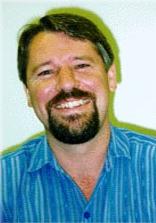
Howard Campbell is a professor of cultural anthropology at the University of Texas at El Paso. He is the author of five volumes about Mexico and a forthcoming book from University of Texas Press called Drug War Zone: Frontline Dispatches from the Streets of El Paso and Juárez.
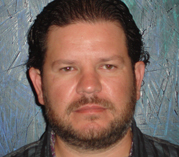
Ramón Cantú studied journalism at the Valle del Bravo University, Nuevo Laredo campus. He has participated in different courses and seminars, like the Innovation seminar for Latin American Media, at Mexico City. On January, 2006, the newspaper El Mañana de Nuevo Laredo, where he is executive director, co-hosted a seminar “Drug-trafficking and News Coverage”, organized by the Inter American Press Association (IAPA). In June, 2006 he was a panelist at a roundtable conference organized by IAPA on Journalism and Coverage of Organized Crime. He has been editorial director and CEO of Editora Argos, a company that publishes the independent newspapers El Mañana and La Tarde (Nuevo Laredo).
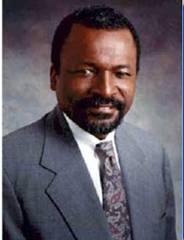
As director of the Center for Substance Abuse Treatment under the Substance Abuse and Mental Health Services Administration, U.S. Department of Health and Human Services, Dr. H. Westley Clark leads the agency's efforts to provide effective and accessible treatment to all Americans with addictive disorders. Dr. Clark's areas of expertise include substance abuse treatment, methadone maintenance, pain management, dual diagnosis, psychopharmacology, anger management, and medical and legal issues. He is also a noted author, clinician, teacher and spokesperson in the field of addiction and forensic psychiatry. Dr. Clark received his medical degree from the University of Michigan and his law degree from Harvard University Law School. Dr. Clark received his board certification from the American Board of Psychiatry and Neurology in psychiatry and sub-specialty certifications in both addiction and forensic psychiatry. Dr. Clark is licensed to practice medicine in California, Maryland, Massachusetts and Michigan. He is also a member of the Washington, D.C., Bar Association.
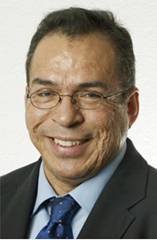
Alfredo Corchado was born in Durango, Mexico, and left when he was six years old for California, and then, Texas. He is a 1987 graduate of the University of Texas at El Paso and a 2009 Nieman Fellow at Harvard University.
Mr. Corchado has worked for the Dallas Morning News since 1994. As Mexico Bureau Chief he’s covered everything from Mexico’s democratic movement, immigration, the death of women in Juárez, the fall of Mexico’s ruling party to the rise of Vicente Fox and drug traffickers. Mr. Corchado has also worked for The Dallas Morning News in Cuba and Washington. Before joining The News, Mr. Corchado worked in public radio on the U.S.-Mexico border, the Ogden Standard-Examiner in Utah, the El Paso Herald-Post and The Wall Street Journal in Philadelphia and Dallas.
His reporting in Mexico and along the U.S.-Mexico border has earned him several awards, including the Maria Moors Cabot prize given by Columbia University. Mr. Corchado is considered an expert on drug-related violence and the threat it poses to Mexican and U. S. national security. He currently lives in Mexico City but calls the border home.
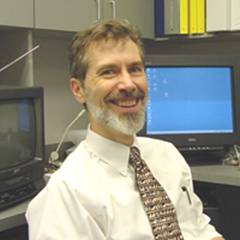
David Courtwright is a presidential professor at the University of North Florida and current president of the Alcohol and Drugs History Society. He has served on the Institute of Medicine's Substance Abuse Coverage Committee (1988-1990) and has written Dark Paradise: A History of Opiate Addiction in America (Harvard, 2001) and other books about drug history and drug policy. He holds a Ph.D. in History from Rice University.
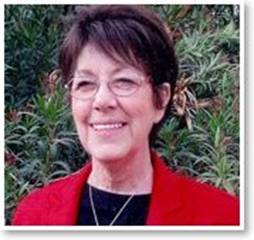
Carolyn Esparza is the Founder and Executive Director of Community Solutions of El Paso. A master’s level social worker and Licensed Professional Counselor with over thirty years experience in counseling and administration of social service organizations, Ms. Esparza has a special concern for individuals, youth and families experiencing recurrent behaviors interfering with personal success. She has developed the Trouble Bubble and the Trouble Bubble Game as interventions for interrupting troubled behaviors. Her practical, interactive workshops for youth, families and professionals are motivating and esteeming. She provides team-building services and clinical consultation and training for social service professionals. Her book,“The Parenting Business”, provides help to parents struggling with parenting challenges.
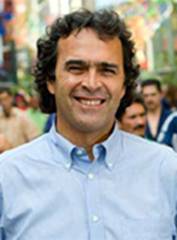
Dr. Sergio Fajardo Valderrama, a PhD in mathematics, was Mayor of Medellín, Colombia's second largest city, between 2004 and 2007. He is currently running for the presidency in 2010. His term governing the city of Medellín was marked by transparency, opportunity, and the dramatic decrease in the annual rate of homicides. He balanced the local budget, used performance-based evaluation to assign the highest staff positions for the Boards of the city, and normalized teacher recruitment for one year terms. Public opinion polls gave him an 80 percent approval rating. He was a member of the National Council on Basic Sciences, the National Commission on Masters and Doctorates, the Board of the Foundation Supporting the Universidad de Antioquia, and Director of the Center for Science and Technology in Antioquia. He also had a career as a journalist, and he was sub-director of El Colombiano and a columnist for El Mundo, El Espectador and the magazine Dinero. He worked on the television programs Operación Ciudad of Telemedellín and Zanahoria of Teleantioquia. Sergio Fajardo participated in the peace process as a founding member of the Facilitating Commission for Peace in Antioquia (Comisión Facilitadora de Paz de Antioquia) during the tenure of current President Alvaro Uribe.
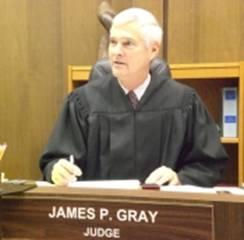
Based upon his experience as a former federal prosecutor with the U.S. Attorney's Office in Los Angeles, a criminal defense attorney with the U.S. Navy JAG Corps, and a 25-year veteran on the trial court bench, Judge James P. Gray concluded that our nation's drug policy was not working. So he began speaking publicly about our alternatives to this policy in April of 1992, and has also written a book about the issues involved, which is entitled Why Our Drug Laws Have Failed (Temple University Press, 2001). He has also appeared on more than 300 radio and television programs, including The O'Reilly Factor (twice), an ABC News Special with John Stossel, and Dr. Dean Edell's radio programs.
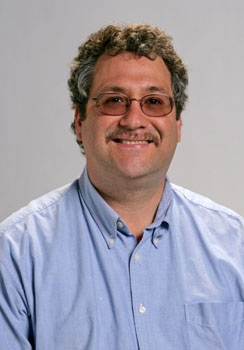
Josiah Heyman (Ph.D., CUNY 1988) is Professor of Anthropology and Chair of the Department of Sociology and Anthropology at the University of Texas at El Paso. He is the author or editor of three books and over thirty articles on borders, law enforcement bureaucracies, migration, and anthropological theory. His current work addresses border security, including a comprehensive review of U.S. border policies since 9/11 (Josiah McC. Heyman and Jason Ackleson, “U.S. Border Security after September 11,” forthcoming in John Winterdyck and Kelly Sundberg, eds., Border Security in the Al-Qaeda Era, Taylor and Francis publishers).
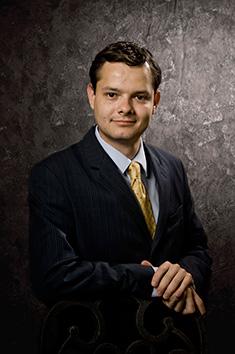
Juan Carlos Hidalgo is project coordinator for Latin America at the Center for Global Liberty and Prosperity. Previously he was Latin America director of the International Policy Network and editor of elcato.org, the Cato Institute's Spanish-language web site. He writes frequently on Latin American affairs and his articles have been published in newspapers throughout the region including El Universal (Mexico), El Comercio (Perú), La Nación (Argentina), El Tiempo (Colombia) and El Mercurio (Chile), among others. He has also appeared on CNN en Español, Univisión, Telemundo, Voice of America, PBS, Bloomberg TV, and a variety of other TV and radio outlets in the U.S. and Latin America. Hidalgo received his B.A in International Relations from the Universidad Nacional in Costa Rica and holds a master's degree in International Commerce and Policy from George Mason University.
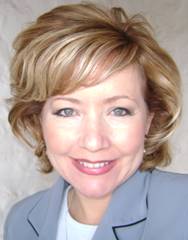
Angela Kocherga is the Border Bureau Chief for Belo television. Based in El Paso she travels the southwest border and deep into the interior of Mexico for stories Belo a company with 20 television stations and 3 regional cable networks.
Angela has reported on a wide range of issues. Among them: the impact of drug violence, immigration, binational health, trade and Mexico’s democratic transition including the last 3 presidential elections. She was born in Mexico City and raised in Guadalajara. She also grew up in Texas in the Rio Grande Valley. She’s a graduate of the University of Texas at Austin.
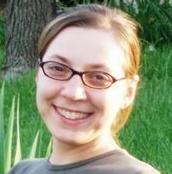
Amber Langston currently serves as the Outreach Director for Students for Sensible Drug Policy in the Midwest and Southwest Regions as well as for international chapters. Amber has done both undergraduate and graduate work at the University of Missouri-Columbia in the areas of community development, environment, health and international studies. Amber was a founding member of the University of Missouri chapter of SSDP in 2002, and in 2004 she acted as the campaign manager for two successful municipal initiatives relating medical marijuana and marijuana decriminalization in Columbia, MO. In 2006 Amber served as a member of SSDP's Board of Directors, and in 2008 joined the organization as a full-time staff member.
.
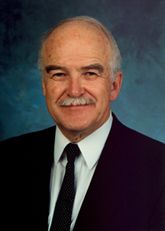
William Martin is the Harry and Hazel Chavanne Senior Fellow in Religion and Public Policy at the Baker Institute and the Chavanne Emeritus Professor of Sociology at Rice University. His areas of research and writing at the Baker Institute focus on two major sets of issues: 1) the political implications of religion, particularly fundamentalist religion, and 2) ways to reduce the harms associated with both drug abuse and drug policy. His articles, most of which deal with aspects of religion, have appeared in such publications as The Atlantic Monthly, Harper’s, Esquire and Texas Monthly — for which he wrote a monthly column, “Faith Bases,” about religion in Texas — as well as in professional journals. His book, “A Prophet with Honor: The Billy Graham Story,” is regarded as the authoritative biography of Billy Graham. An updated edition of his 1996 book, “With God on Our Side: The Rise of the Religious Right in America,” the companion volume to a six-hour documentary PBS miniseries of the same name, was reissued in June 2005 by Broadway Books. He is a frequent guest on national and local news and discussion programs. During his 40 years at Rice, Martin has received numerous teaching awards, including a Lifetime Award for Excellence in Teaching.

Oscar J. Martínez is Regents’ Professor of History at the University of Arizona. He has authored and edited eight books and many articles, book chapters, and reviews. His most recent works include Troublesome Border (2nd edition, University of Arizona Press, 2006) and Mexican Origin People in the United States (University of Arizona Press, 2001). His current book project seeks to explain why Mexico is poorer than the United States. Martínez has served on the boards of several journals and professional associations. He is a former president of the Association of Borderlands Scholars and a founder of the Journal of Borderlands Studies.
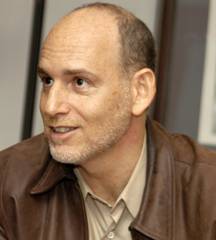
Described by Rolling Stone as “the point man” for drug policy reform efforts, Ethan Nadelmann is widely regarded as the outstanding proponent of drug policy reform both in the United States and abroad. He is the founder and executive director of the Drug Policy Alliance, the leading organization in the United States advocating for drug policies grounded in science, compassion, health, and human rights. He has written articles for a wide range of journals, including Science, Foreign Affairs, American Heritage, and National Review, and is the author of Cops Across Borders, the first scholarly study of the internationalization of U.S. criminal law enforcement. He received his B.A., J.D., and Ph.D. from Harvard, and a Master’s degree in International Relations from the London School of Economics, and then taught politics and public affairs at Princeton University.
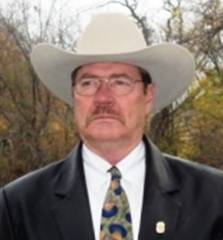
Terry Nelson's law-enforcement career spanned three decades. It included service in the US Border Patrol, the US Customs Service, and the Department of Homeland Security, taking him beyond US borders into Mexico, Central America, and South America. He labored with distinction, even receiving special Congressional recognition for his work. He is currently serving his second tour in Iraq as a Borders Enforcement Advisor.
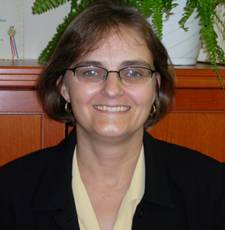
Joy Olson is the Executive Director of the Washington Office on Latin America (WOLA), a human rights organization that promotes democracy and socioeconomic justice in Latin America and the Caribbean with a focus on U.S. foreign policy. Prior to joining WOLA, Olson served nine years as Director of the Latin America Work Group (LAWG), a coalition of 60 non-governmental organizations working together to promote peaceful and just U.S. foreign policy toward Latin America. She co-founded the Just the Facts (Justf.org) project documenting U.S. military programs with Latin America and co-authored its three books. Olson has a Master’s degree in Latin America Studies from the National Autonomous University of Mexico (UNAM) and did her thesis on the development of the non-governmental human rights community in Mexico.
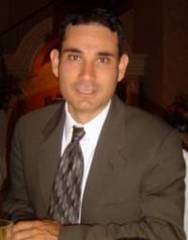
Dr. Tony Payan is an Associate Professor of Political Science at the University of Texas at El Paso and the Center for Inter-American and Border Studies. He earned his B.A. in Philosophy and Classical Languages (Greek and Latin) from the University of Dallas; his M.B.A. from the Graduate School of Management in Dallas, Texas, and his doctorate degree from Georgetown University in Washington, DC. His area of studies is in the field of international relations, with emphasis on U.S. Foreign Policy; Mexican foreign policy; U.S.-Mexico relations; and international relations theory on the border.
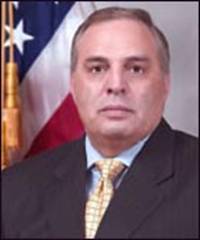
Anthony Placido leads the Drug Enforcement Administration’s intelligence program, including the global collection enterprise. His responsibilities include service as Senior Officer for the United States Intelligence Community; executive leadership for the headquarters based Intelligence Division, the Organized Crime Drug Enforcement Fusion Center and the El Paso Intelligence Center; information sharing and exchange protocols; managing a budget of approximately $100 million and developing policy for a staff of approximately 1,300, including more than 900 Intelligence Analysts assigned around the world. Placido began his law enforcement career in 1979 with the U.S. Customs Service. The following year he joined DEA and received an appointment as a Special Agent in 1982. Placido served in multiple domestic and foreign posts, has extensive experience in foreign affairs and in developing policy and leading counter-drug programs. His management assignments include: Team Leader for the Tactical Intelligence Unit in Peru; Supervisor for an enforcement group in Florida; Senior Inspector with the Office of Professional Responsibility (internal affairs); and Executive Assistant to DEA’s Deputy Administrator.
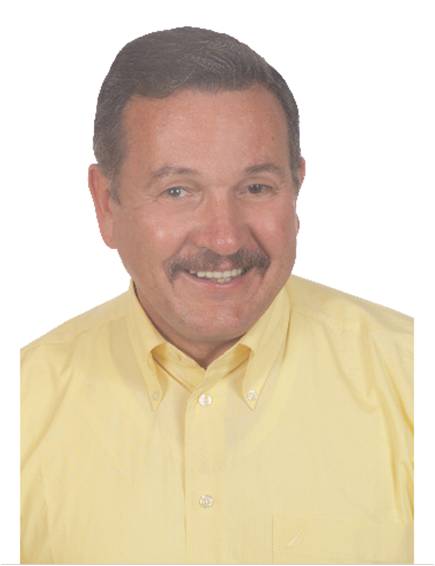
Victor Quintana, born in Cuauhtémoc, Chihuahua, Mexico in 1948. Master degree in sociology in the School of High Studies in Social Sciences in Paris, France. Candidate to PH.D. In Sociology at the Institute for High Studies on Latin America of the University of Paris 3. Co-founder and counselor of the Frente Democrático Campesino, a dry lands farmer group in Chihuahua, since 1987. Deputy to Federal Congress for the Partido de la Revolución Democrática (PRD), from 1994-to 1997. Deputy Mayor of Mexico City in the district Gustavo A. Madero in 1999-2000. Member of the national direction of the movement: El campo no aguanta más (The countryside can’t take it anymore) 2002-2003. Researcher and professor of the Universidad Autónoma de Ciudad Juárez. Writes articles for the national newspaper La Jornada, and is a commentator for several radio and TV stations in the state of Chihuahua. Has participated in many national and international seminars on agriculture, free trade, social movements. In October he will take office as deputy of the Congress of the State of Chihuahua.
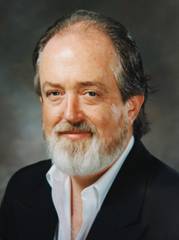
Craig Reinarman is Professor of Sociology and Legal Studies at the University of California, Santa Cruz. He has been a Visiting Scholar at the Center for Drug Research at the University of Amsterdam; a member of the board of directors of the College on Problems of Drug Dependence; a consultant to the World Health Organization's Programme on Substance Abuse; and a principal investigator on research grants from the U.S. National Institute of Drug Abuse and the National Institute of Justice. Dr. Reinarman is the author of /American States of Mind/ (Yale University Press, 1987) and co-author of /Cocaine Changes/ (Temple University Press, 1991) and /Crack in America/ (University of California Press, 1997). He has published numerous articles on drug use, law and policy in such journals as /Theory and Society/, the/ British Journal of Addiction, American Journal of Public Health/, the/ International Journal of Drug Policy,/ and /Addiction Research and Theory/.
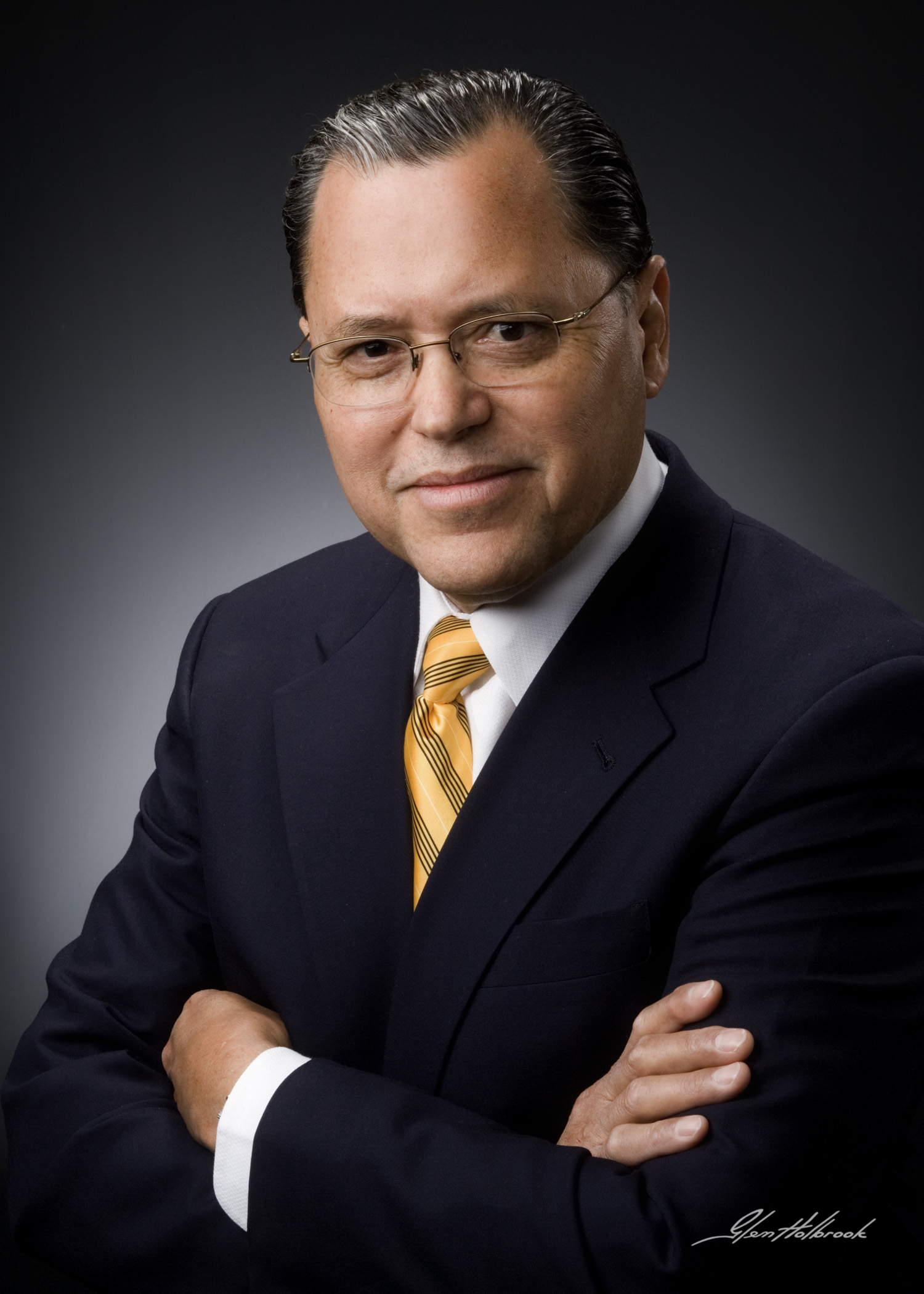
José R. Rodríguez is the County Attorney for El Paso County. In addition to representing the county and the Thomason hospital district in all legal matters, the county attorney prosecutes juvenile crime, family violence protective orders, child abuse and neglect cases, and mental commitments. Mr. Rodriguez served as the prosecutor for the El Paso Courts of Inquiry which investigated state underfunding of El Paso. Prior to assuming his office on January 1, 1993, Mr. Rodríguez was Legal Advisor to the County Judge, the Honorable Alicia R. Chacon. He practiced law with the firm of Rodríguez, Lewis & Collins and worked for ten (10) years as a Staff attorney and director of the farmworker program of Texas Rural Legal Aid, Inc., a statewide legal services program, litigating matters involving labor and employment, housing, and civil rights. Mr. Rodríguez began his legal career as a staff attorney with the United States Department of Housing and Urban Development in Washington, D.C. He received his law degree from the George Washington University National Law Center in 1974.
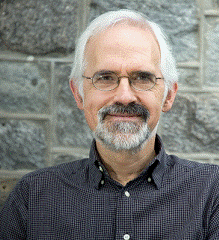
Eric Schneider is the Associate Director for Academic Affairs in the College of Arts and Sciences at the University of Pennsylvania, where he an Adjunct Professor of History and teaches in the Urban Studies program. He is the author of In the Web of Class: Delinquents and Reformers in Boston, 1810s-1930s (1992), Vampires, Dragons, and Egyptian Kings: Youth Gangs in Postwar New York (1999), and Smack: Heroin and the American City (2008). Trained as a historian and a geographer, Schneider is interested in how class, race and gender are reflected in the built environment and how the built environment reproduces these categories. He is currently working on two projects: one is a history of homicide in postwar Philadelphia (American Necropolis: Homicide in the Modern City) and the other is a collaborative project on the history of the Vietnam Era Study, which was a longitudinal panel study comparing Vietnam veterans with a sample of draft eligible men that examined drug and alcohol use, suicide and early death.
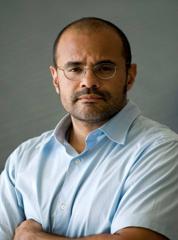
Dr. David A. Shirk is the Director of the Trans-Border Institute and Associate Professor in the Political Science Department at the University of San Diego. He is currently a fellow at the Woodrow Wilson Center in Washington, D.C. Dr. Shirk received his Ph.D. in Political Science at the University of California, San Diego, and was fellow at the Center for U.S.-Mexican Studies from 1998-99 and 2001-2003. He conducts research on Mexican politics, U.S.-Mexican relations, and law enforcement and security along the U.S.-Mexican border. He teaches and lectures widely on related issues in the United States, as well as Latin America and Europe. Dr. Shirk is the principal investigator for the Justice in Mexico project (www.justiceinmexico.org), a bi-national research initiative on criminal justice and the rule of law in Mexico. Recent publications by Dr. Shirk include Police and Public Security in Mexico, co-edited with Robert Donnelly (Trans-Border Institute, 2009), Contemporary Mexican Politics, co-authored with Emily Edmonds-Poli (Rowman and Littlefield Publishers, 2008); Reforming the Administration of Justice in Mexico, co-dited with Wayne Cornelius (University of Notre Dame Press, 2007); Evaluating Accountability and Transparency in Mexico: National, Local, and Comparative Perspectives, co-edited with Alejandra Ríos Cásares (Trans-Border Institute, 2007); "Law Enforcement Challenges and 'Smart Borders'," in Homeland Security: Protecting America's Targets (Praeger, 2006); and Mexico's New Politics: The PAN and Democratic Change (Colorado: Lynne Rienner, 2005).
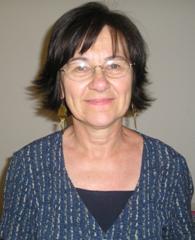
Kathleen (Kathy) Staudt, PhD (University of Wisconsin 1976) is Professor of Political Science at the University of Texas at El Paso. She has published thirteen books, five of which focus on the U.S.-Mexico border, including Violence and Activism at the Border (University of Texas Press 2008). Her forthcoming collection, with co-editors Tony Payan and Z. Anthony Kruszewski, is titled Human Rights along the U.S.-Mexico Border: Gendered Violence and Insecurity; it will be released from the University of Arizona Press in late 2009. She has been a part-time investigadora at El Colegio de la Frontera Norte (Ciudad Juárez) (COLEF), an experience which has led to the forthcoming publication with coeditors César Fuentes and Julia Monárrez: Cities and Citizenship on the Mexico-U.S. Border: The Paso del Norte Metropolitan Region (NY: Palgrave USA, 2010). Kathy teaches courses on Southwest Border Politics, Women and Politics, Public Policy, and Democracy. In 2008, she was one of two awardees statewide to receive the University of Texas Chancellor’s Innovative Teaching recognition. Kathy has been active in community organizations and public service. She is former co-chair of Border Interfaith, affiliated with the Industrial Areas Foundation. She also co-founded the Nonprofit Enterprise Center and the Women’s Fund of El Paso.